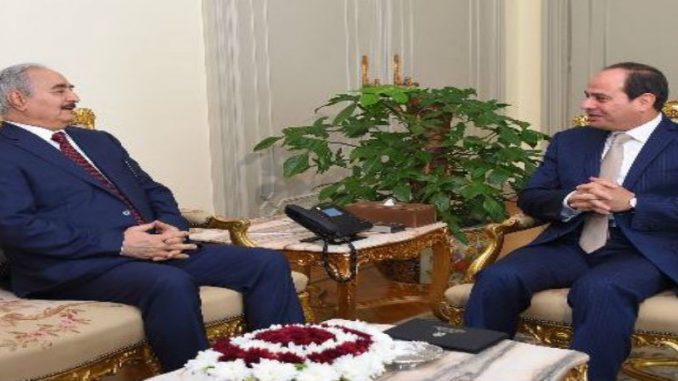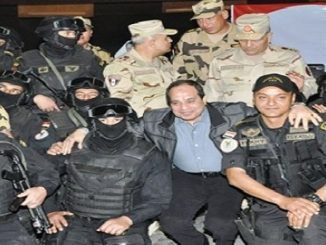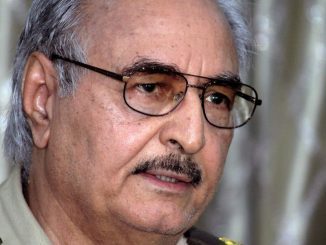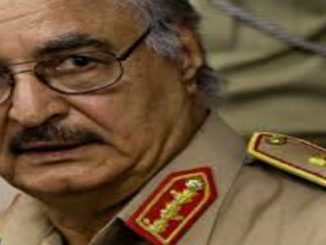
Al-Sisi reiterated Saturday his call for ending the UN-imposed weapons embargo on Libya during talks with Khalifa Haftar in Cairo.
Al-Sisi said this was needed so that the Libyan National Army (the forces affiliated with Khalifa Hafter) could fight terrorism. After meeting General Khalifa Haftar in Cairo, Al-Sisi said in a statement that Haftar’s Libyan National Army required the weapons to fight terrorism.
Efforts should be made to stop foreign funding from flowing to terrorist groups in Libya, he added. He also claimed that militants were being aided with munitions and fighters by “external parties” seeking to interfere in Libya’s affairs.
The United Nations Security Council imposed a weapons embargo on Libya in February 2011.
According to the Egyp’s presidential spokesman Alaa Youssef, al-Sisi also told Haftar that a unified and restored Libyan army was essential.
Both men reportedly said that the Libyan Political Agreement (LPA) had to be made to work through amendments and that it was the only way to allow state institutions to be rebuilt.
The Egyptian statement said both al-Sisi and Haftar want dialogue between all Libyan factions to continue, to reach a political solution to the conflict.
No mention was made of rumors that Presidency Council head Fayez al-Serraj would soon arrive in Cairo for talks with Haftar and potentially hosted by Sisi, according to Libyan media outlets.
The last occasion the two key players in Libya were in Cairo at the same time Haftar refused to meet al-Serraj.
However, the two Libyan leaders held talks in Abu Dhabi under the mediation of the UAE. Al- Sisi also visited UAE at the same time and there were unconfirmed reports that he saw Haftar and al-Serraj.
Since the 2011 revolt that toppled and killed longtime leader Muammar Gaddafi, Libya has fallen into chaos with rival militias and authorities were competing to control the oil-rich country.
Libya is now split between rival governments and militias, and Islamic State fighters entered the country amid the chaos, but were largely beaten back.
Haftar is a military figure, backed by Tobruk government based in eastern Libya that refuses to recognize the U.N.-backed government, enjoys the support of several Arab nations, including Egypt, the United Arab Emirates, and Jordan, as well as western countries as France.
Egypt has hosted Haftar as well as leaders from Libya’s west for talks in Cairo in an attempt to mediate Libya’s conflict.
Since last September,excessive meetings have been held, under Egypt’s auspices, with several Libyan officials and members in Tobruk’s House of Representatives to resolve the Libyan crisis and amend the Skhirat agreement in a way that enclose Libya’s strongman in the political process.
The Libyan Political Agreement, signed in Skhirat, Morocco December 2015 known as the Skhirat Agreement, intensified the internal strife rather than resolving it.
Al-Sisi’s military and political officials have been working throughout the previous months with different Libyan factions to resolve the Libya’s political deadlock on one hand and to strengthen Haftar’s role in Libya, especially by focusing on amending the Political Agreement (PA) article that outlined the authorities of the Libyan army chief commander and that also excluded Haftar from leading the army.
On December 13, 2016, Cairo hosted a conference attended by Libyan officials and representatives from the country’s numerous factions, where they issued a declaration of principles and five proposed amendments to an agreement, brokered by the UN in 2015.
The conference concluded an agreement on amending the 8th article of the 2015 agreement that outline the authorities of the Libyan army chief commander.



